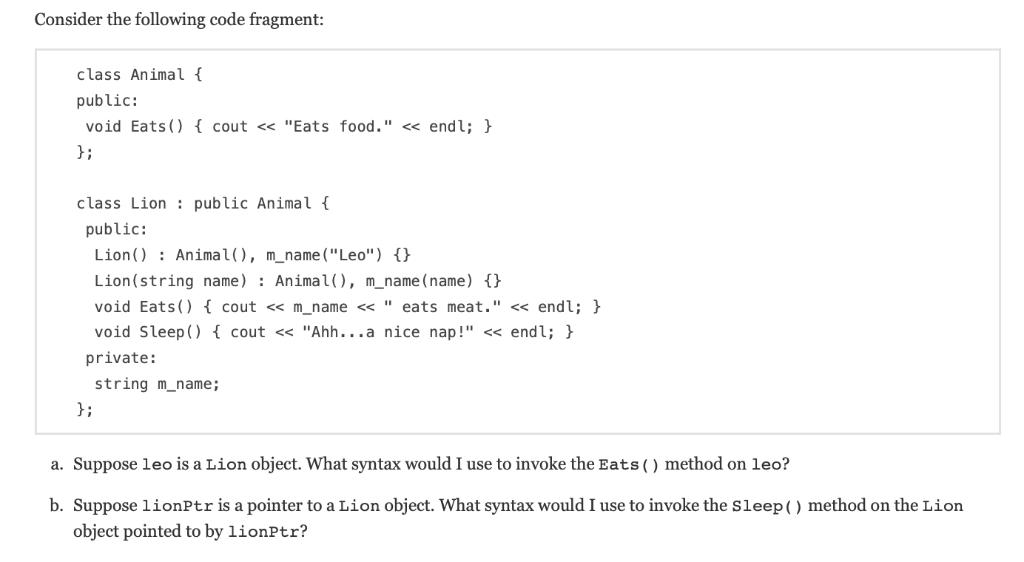Question
Consider the following code fragment: class Animal { public: void Eats() { cout < < Eats food. < < endl; } }; class Lion

Consider the following code fragment: class Animal { public: void Eats() { cout < < "Eats food." < < endl; } }; class Lion public Animal { public: Lion() Animal(), m_name("Leo") {} Lion(string name): Animal(), m_name(name) {} void Eats() { cout < < m_name < < " eats meat." < < endl; } void Sleep() { cout < < "Ahh...a nice nap!" < < endl; } private: }; string m_name; a. Suppose leo is a Lion object. What syntax would I use to invoke the Eats () method on leo? b. Suppose lionPtr is a pointer to a Lion object. What syntax would I use to invoke the Sleep () method on the Lion object pointed to by lionPtr?
Step by Step Solution
There are 3 Steps involved in it
Step: 1
In the given code fragment there are two classes Animal and Lio...
Get Instant Access to Expert-Tailored Solutions
See step-by-step solutions with expert insights and AI powered tools for academic success
Step: 2

Step: 3

Ace Your Homework with AI
Get the answers you need in no time with our AI-driven, step-by-step assistance
Get StartedRecommended Textbook for
Computer organization and architecture designing for performance
Authors: william stallings
8th edition
136073735, 978-0136073734
Students also viewed these Programming questions
Question
Answered: 1 week ago
Question
Answered: 1 week ago
Question
Answered: 1 week ago
Question
Answered: 1 week ago
Question
Answered: 1 week ago
Question
Answered: 1 week ago
Question
Answered: 1 week ago
Question
Answered: 1 week ago
Question
Answered: 1 week ago
Question
Answered: 1 week ago
Question
Answered: 1 week ago
Question
Answered: 1 week ago
Question
Answered: 1 week ago
Question
Answered: 1 week ago
Question
Answered: 1 week ago
Question
Answered: 1 week ago
Question
Answered: 1 week ago
Question
Answered: 1 week ago
Question
Answered: 1 week ago
Question
Answered: 1 week ago
Question
Answered: 1 week ago
Question
Answered: 1 week ago
View Answer in SolutionInn App



